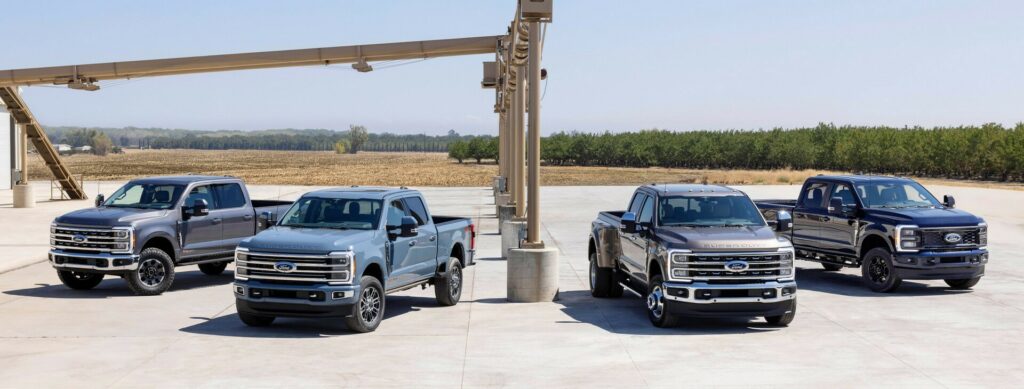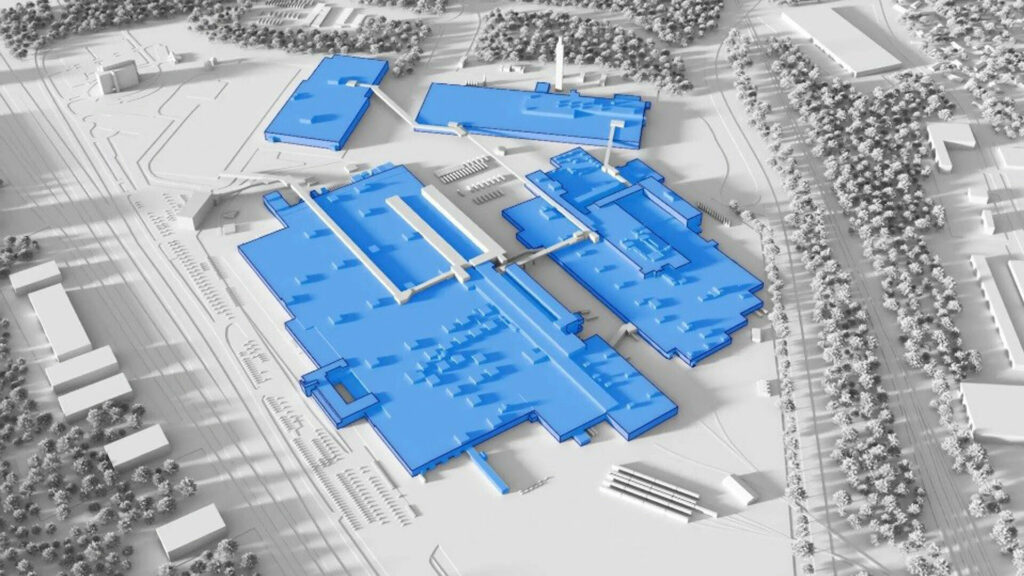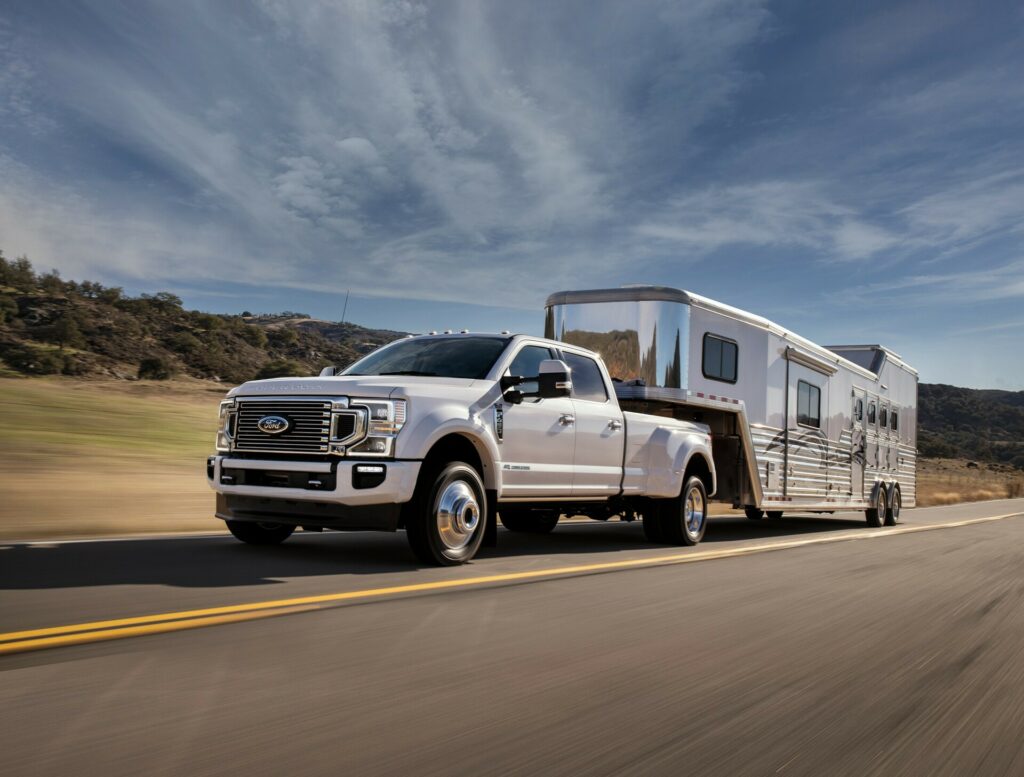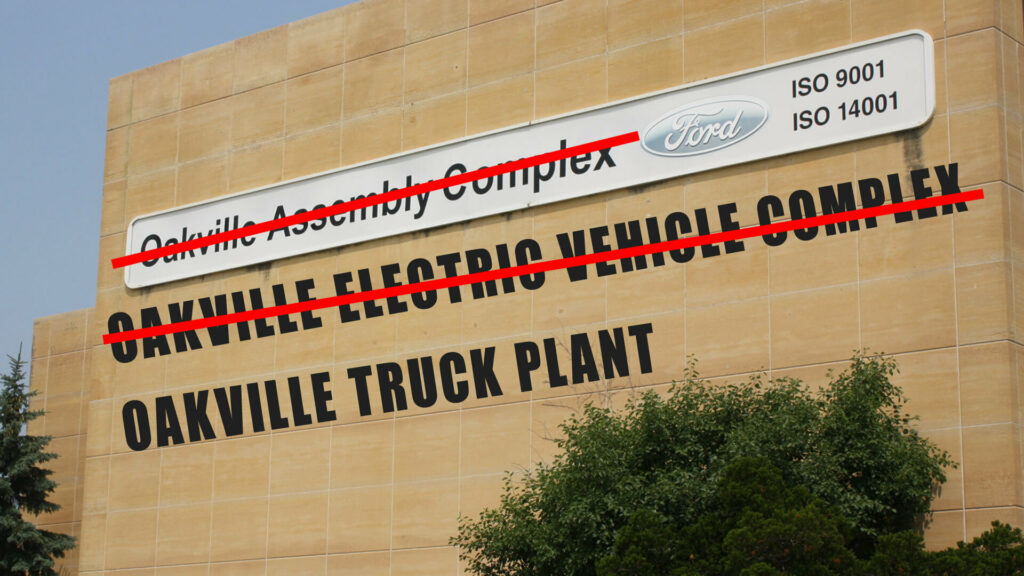- Ford has announced plans to build Super Duty pickups at Oakville Assembly.
- Production is slated to begin in 2026 and the facility will be able to build up to 100,000 trucks annually.
- The plant was originally slated to make an assortment of EVs, but the company changed course following slower than expected electric vehicle adoption.
Last year, Ford announced plans to transform Oakville Assembly into a “Canadian hub of electric vehicle manufacturing.” Production of next-generation electric vehicles was slated to begin in 2025 and Unifor’s National President said the facility would build a total of five different EVs.
Fast forward to today and Ford is pulling a massive switcheroo as the facility will now build F-Series Super Duty pickups. Production is slated to begin in 2026 and the automaker said the plant will have an initial capacity of up to 100,000 units annually.
More: Ford Transforming Canada’s Oakville Plant Into EV Manufacturing Hub
Ford said the move secures approximately 1,800 jobs and enables them to boost “production of one of the company’s most popular and profitable vehicles.” It also has the added bonus of giving Ford a Super Duty production site out of UAW reach.
The union famously shut down the Kentucky Truck Plant in 2023, which infuriated Ford. Earlier this year, the UAW threatened to shut down the plant once again if local contract issues were not resolved. The two sides eventually patched things up, but it’s easy to see why Ford would want a Super Duty plant without all the UAW headaches.

Besides that underlying issue, Ford CEO Jim Farley said “even with our Kentucky Truck Plant and Ohio Assembly Plant running flat out, we can’t meet the demand” for Super Duty pickups.” However, by adding production in Canada, Ford will be able to get trucks to consumers and build their Ford Pro commercial business.
As part of the move, Ford will invest approximately $3 ($4.1 CAD) billion into the plant to make Super Duty pickups there. The company will also add approximately 150 jobs at the Windsor Engine Complex to cope with increased truck production.

Ford didn’t say much about the impact on their EV push, but it appears the company has abandoned plans to rename the plant the Oakville Electric Vehicle Complex. Instead, they referred to it as Oakville Assembly no less than eight different times.
However, the company said they remain “committed to developing a growing and profitable electric vehicle business, including three-row electric utility vehicles, leveraging its experience as a leader in U.S. three-row utilities and America’s No. 2 electric vehicle brand.” Of course, it’s pretty clear EVs are on the backburner.
Speaking of which, Ford ‘retimed’ the launch of their three-row electric vehicles to 2027. That’s a full two years behind schedule and, in April, the company said the “additional time will allow … the consumer market for three-row EVs to further develop and enable Ford to take advantage of emerging battery technology, with the goal to provide customers increased durability and better value.” Ford has been coy on specifics, but the models are expected to be electric versions of the Explorer and Lincoln Aviator.





